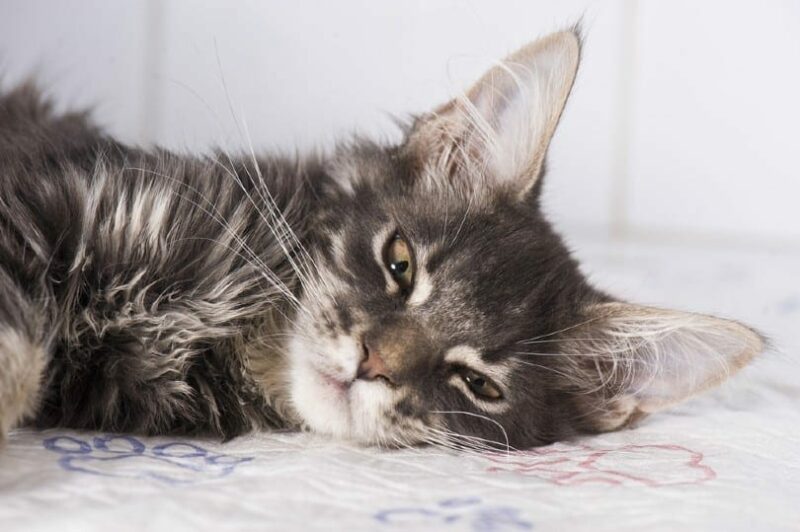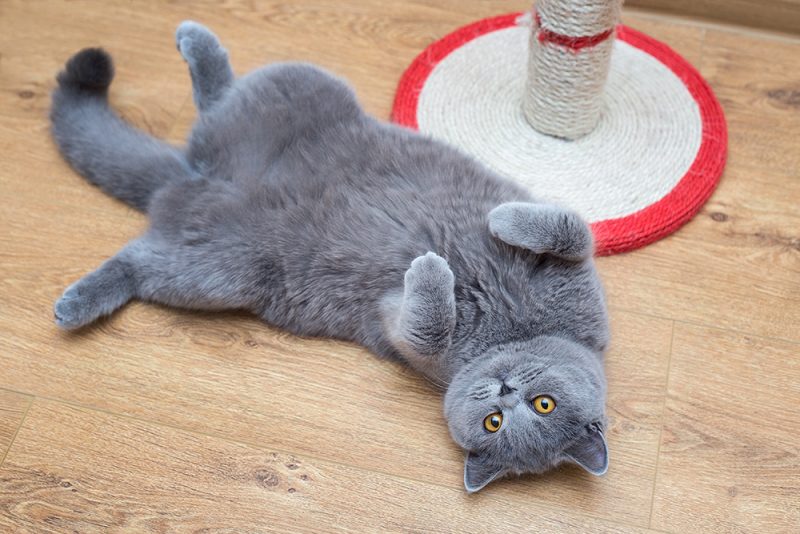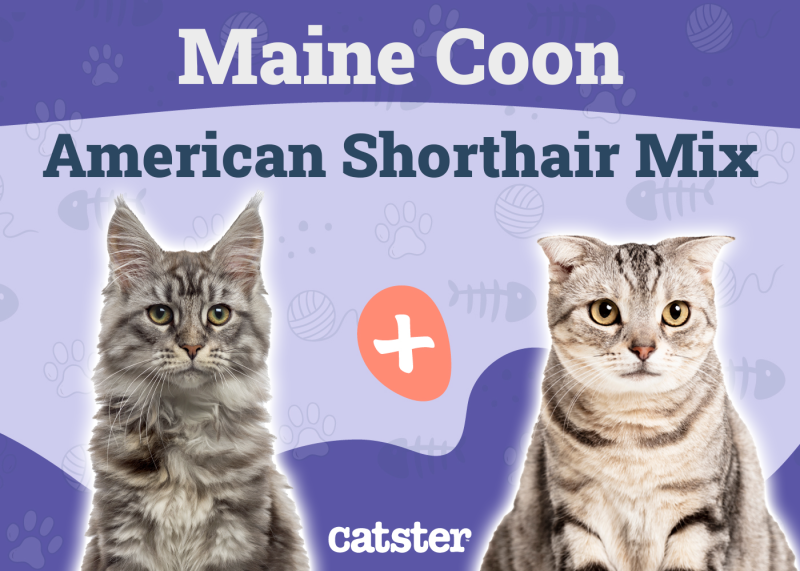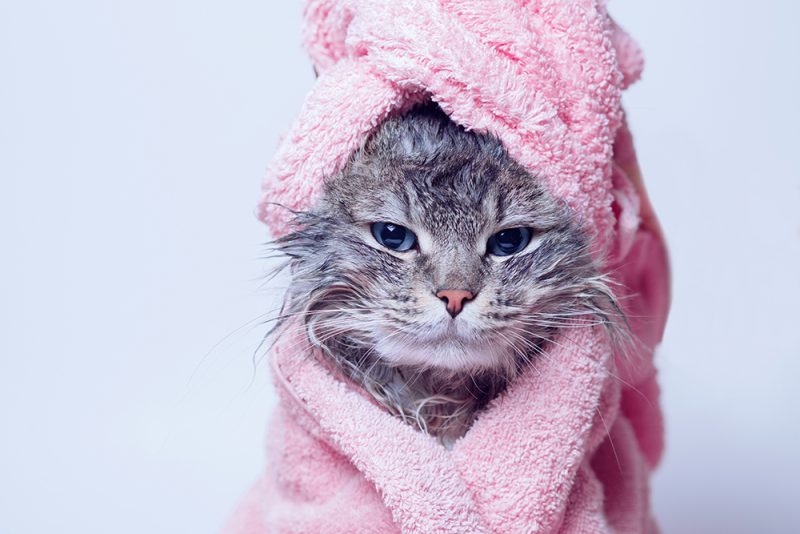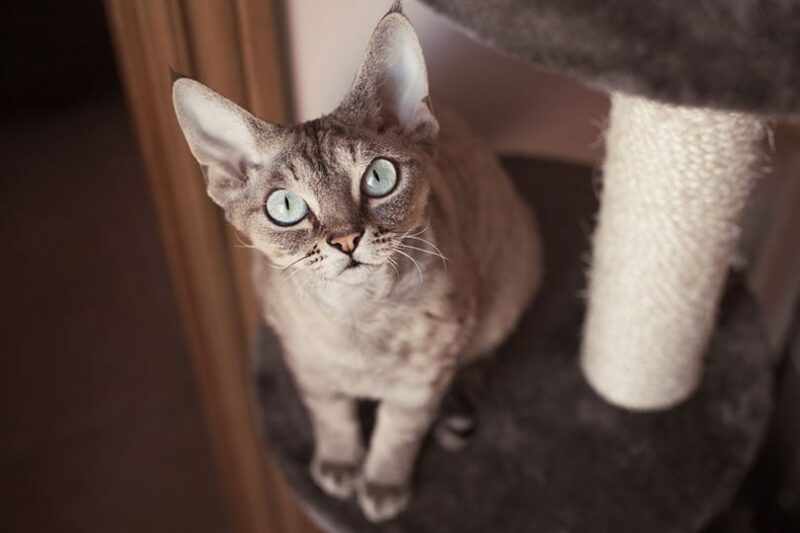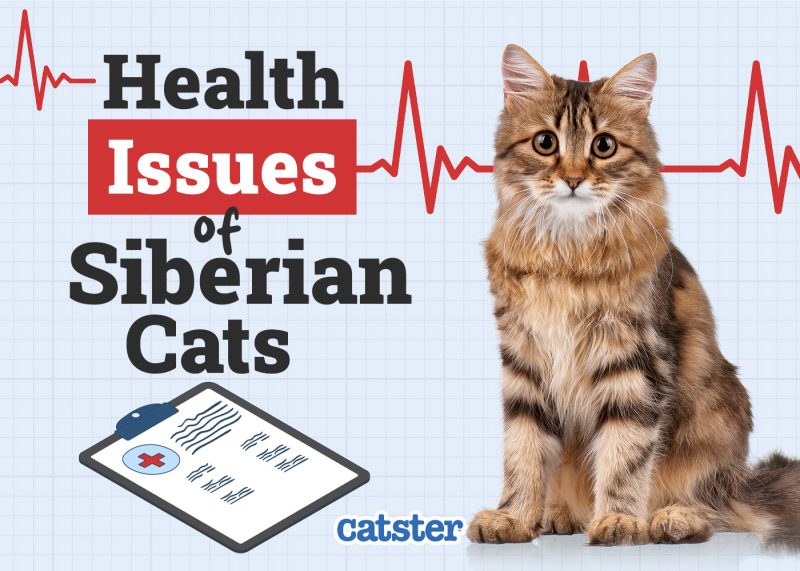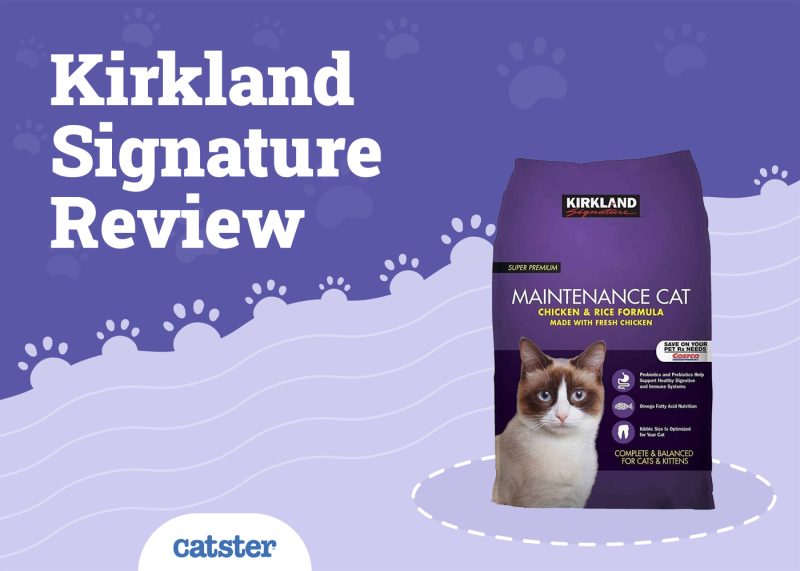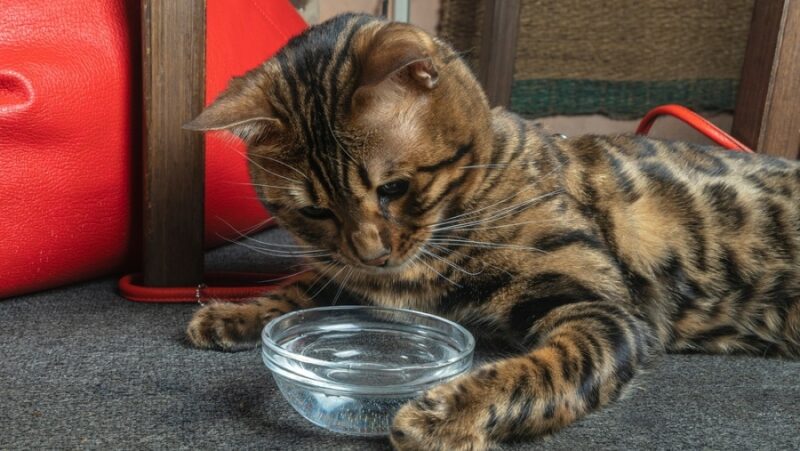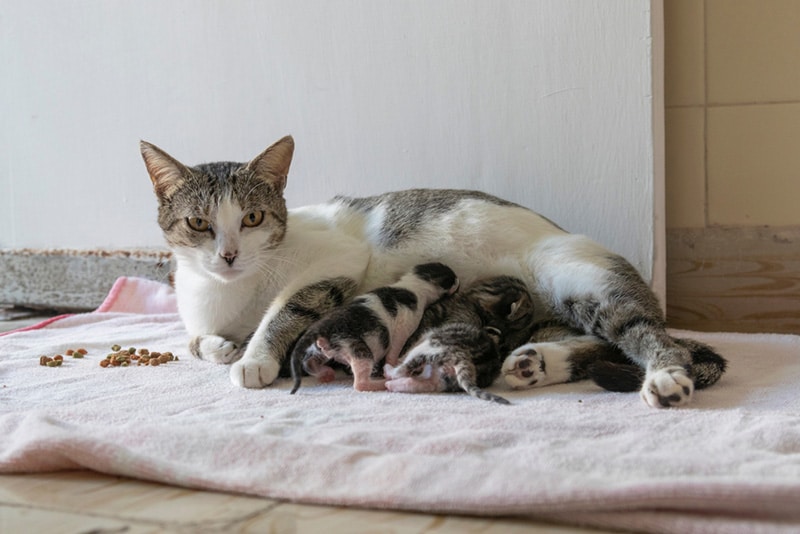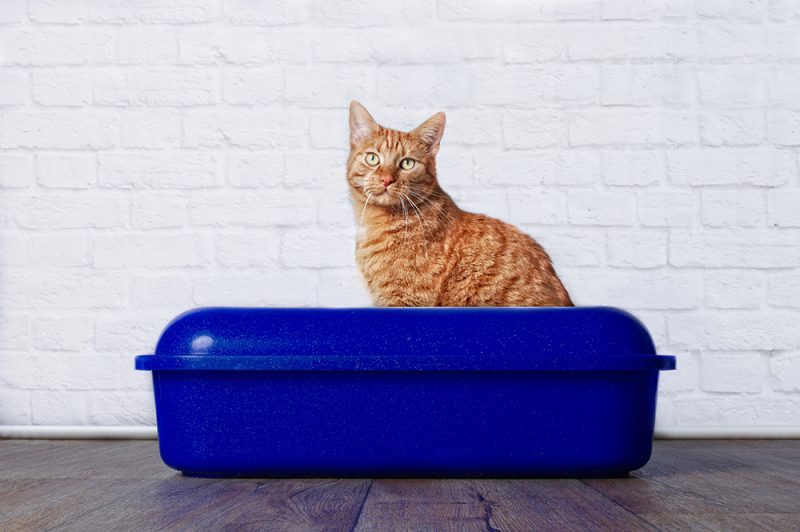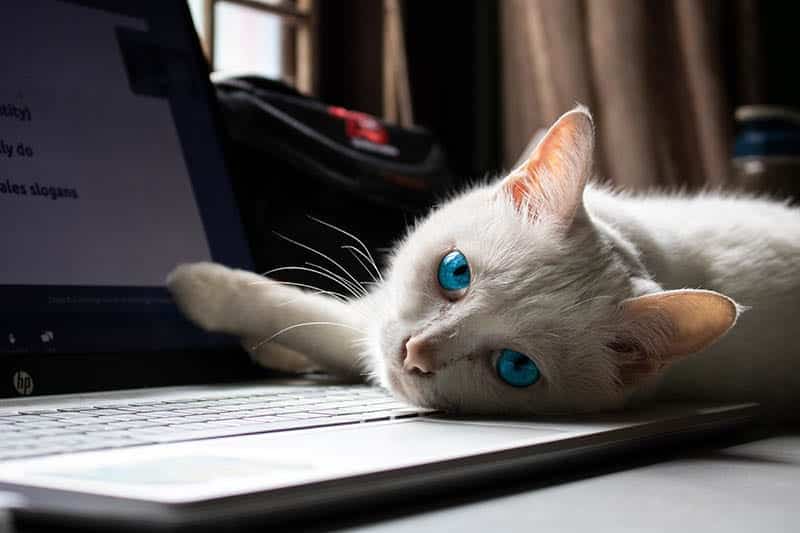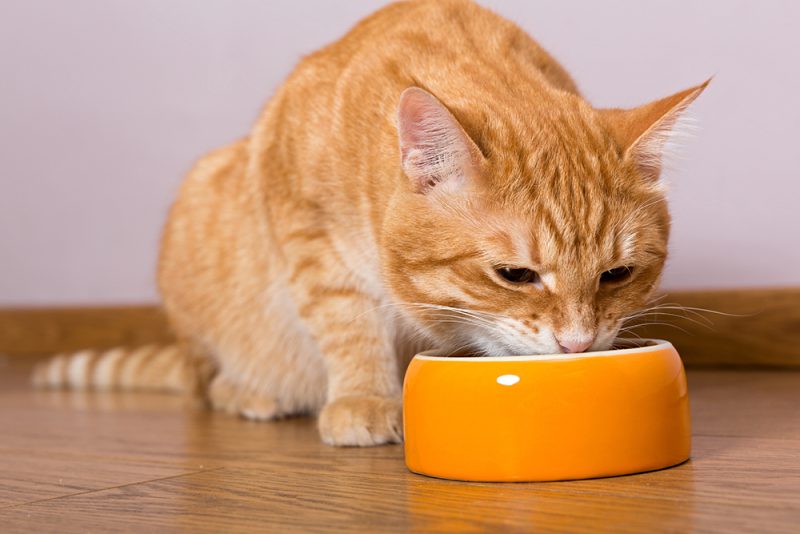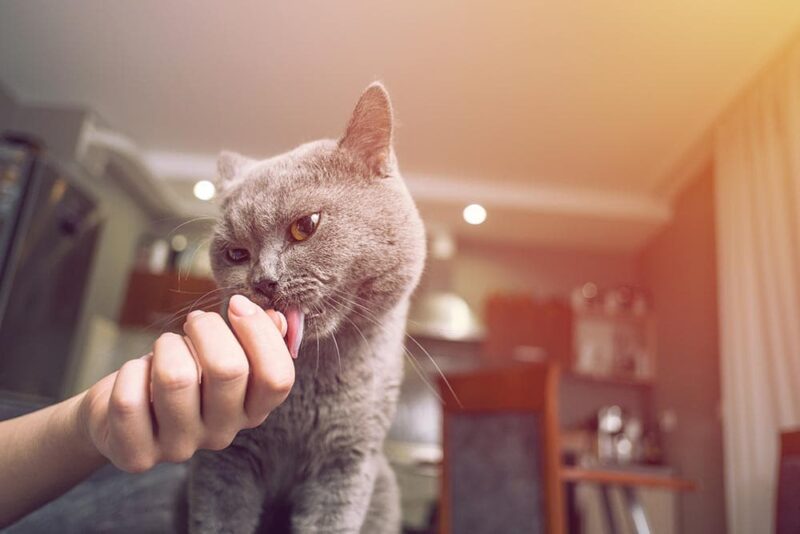Feline Aortic Thromboembolism (abbreviated FATE) is a highly fatal disease caused by a blood clot becoming stuck at the aortic trifurcation—the area where the blood supply to both back legs occurs. This condition almost always occurs acutely, and can come as quite a shock to owners. FATE can occur when your cat has shown absolutely no other signs of illness prior to the event.
In this article, we will discuss the causes, symptoms and recommended care for cats affected with FATE.

What is an Aortic Thromboembolism?
FATE, otherwise known as a “Saddle Thrombus”, is when a blood clot becomes lodged within a cat’s aortic bifurcation (i.e., the “saddle”). This simple diagram may make it easier to understand where this occurs. The descending aorta travels from the heart, through the chest and abdomen, eventually splitting into two vessels—the iliac arteries, which supply blood to both hind limbs. Cats suffering from FATE will get a blood clot right at this bifurcation.
The blood clot may occur within the middle of this bifurcation, cutting off the blood supply to both back legs. The blood clot may also occur slightly more on one side than the other. If this occurs, your cat may just have the blood supply cut off to one of the hind legs.
Cats can get blood clots in other places in the body. For this article, we will be focusing on the blood clots that lodge at this specific location in the body.

What Are the Signs of an Aortic Thromboembolism?
If your cat suffers from FATE, the signs will be severe, dramatic, and often shocking to witness. Cats may show absolutely no signs of illness before they suffer from FATE. Once the clot occurs, it’s an extremely painful process. Affected cats are often in excruciating pain and will howl, scream, and may try to bite owners when they are typically very affectionate.
Cats will be unable to move and/or feel one or both of their back legs. Owners often find them dragging themselves across the floor, vocalizing, panting, and sometimes having difficulty breathing as well. If your cat will allow you to touch them, you’ll notice that the affected back legs will be cold to the touch, and the paw pads will often appear pale pink or dusky. Lack of a pulses to the affected legs is also present.
Unfortunately, some cats who suffer from FATE may progress to death very quickly. Sadly, some cats may not even make it to their veterinarian once the clot occurs.
Is your cat presenting any of these signs? We suggest you speak with a vet online.
If you need to speak with a vet but can't get to one, head over to PangoVet. It's an online service where you can talk to a vet online and get the advice you need for your pet — all at an affordable price!
What Are the Causes of Feline Aortic Thromboembolism?
The most common reason why FATE occurs is cardiac, or heart disease. FATE may be the first sign that your cat has heart disease. Depending on the study, anywhere from 12–30% of cats suffering from FATE were diagnosed with cardiac disease.
If the blood clot is caused from heart disease, it’s commonly because the heart has a structural abnormality making it difficult to pump blood normally. In a normal heart, every drop of blood is squeezed out of the heart into the arteries with every beat. However, with some forms of heart disease frequently seen in cats, the heart cannot squeeze normally—often, from the heart muscle being too thick. This will cause small amounts of blood to remain in some of the heart chambers, swirling around creating blood clots. The longer blood remains abnormally in a chamber, the higher the likelihood of developing clots. Once pumped out into the body, these blood clots can then become lodged.
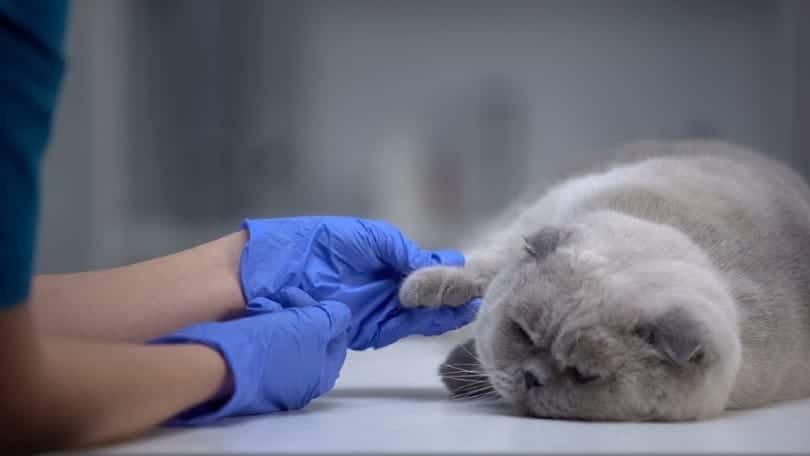
If heart disease is not present, there are other diseases that may make blood clots form in the body. If your cat has any type of cancer, this may make them more prone to blood clots. Cats with an overactive thyroid, known as hyperthyroidism, and cats with kidney disease or hypertension may be at increased risk of forming blood clots.
Unfortunately, FATE may occur without any knowledge of your cat being sick. You may have no idea they have heart disease, kidney failure, cancer, or a thyroid problem. Your cat may also just suffer from FATE with no other underlying illness. This diagnosis is referred to as idiopathic.
How Do I Care for a Cat with an Aortic Thromboembolism?
Cats suffering from an aortic thromboembolism need to be seen by a veterinarian immediately. There is absolutely nothing you can provide at home, and no OTC or human products that you should give to help your cat. Cats suffering from FATE are typically very stressed, having difficulty breathing, and very painful. Do not try to offer your cat food, water, or any treatment at home. Get them to your veterinarian or the nearest emergency veterinarian as quickly and safely as possible.
If you suspect your cat has FATE, you should grab a large towel or blanket and gently wrap your cat in it. This will help to protect your hands and arms from your cat if they try to bite, scratch, and get away. You can then put your cat, wrapped in the towel or blanket, into a carrier or an open-topped box. Make sure your cat’s head is exposed so they can breathe as comfortably as possible.
Be aware that it is very typical for cats with FATE to be thrashing, howling, biting, gator rolling, and in general, extremely stressed and freaking out. You need to take precautions to keep both yourself and your cat as safe as possible.
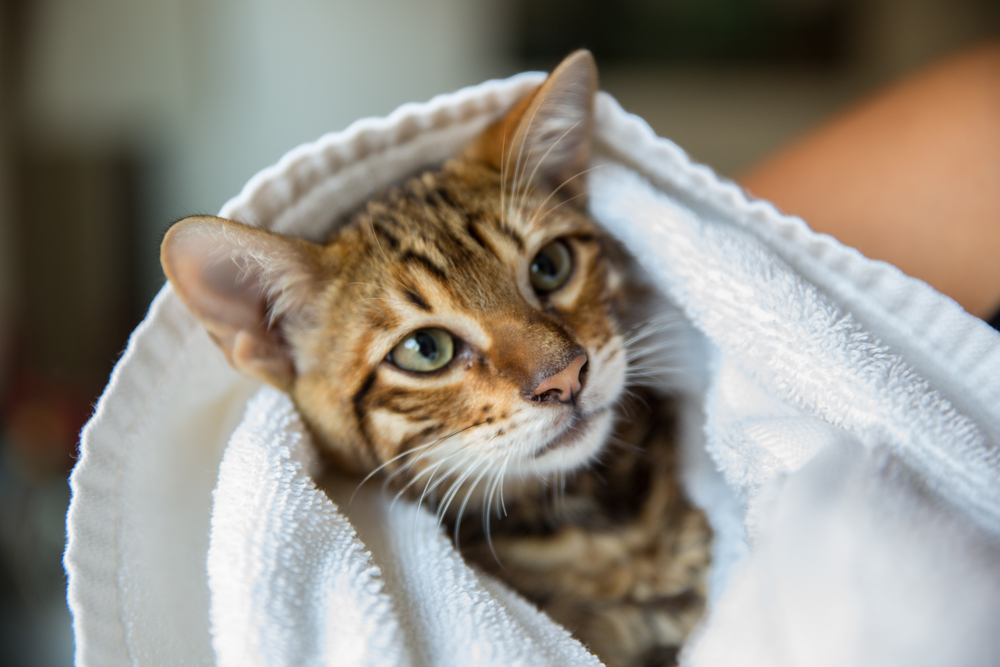
As discussed above, this is an extremely painful condition. Your cat will require strong pain medications, at minimum. Your veterinarian may also need to administer sedatives, oxygen support, and potentially cardiac medications to your cat. Depending on where you take your cat, some clinics (typically universities and specialty clinics) may administer anticoagulant medication. However, these medications are not routinely given, and availability may be limited.
FATE is a highly fatal condition in cats. Even with immediate, aggressive care, many cats do not improve. Some cats will pass away on their own, while others are humanely euthanized due to their severe condition. These possibilities are important to be aware of, should you ever experience this with your cat.

Frequently Asked Questions (FAQs)
How will my veterinarian diagnose a FATE?
Cats suffering from an aortic thromboembolism will have very typical signs and lead your veterinarian to a presumptive diagnosis. The pain, howling, and inability to use one or both hind legs, in addition to the lack of pulses to the affected hind legs are typically present. If there is an underlying heart condition, your veterinarian may also hear a heart murmur or arrhythmia. Ultrasound with Doppler and other advanced imaging modalities, such as a CT, would be needed for a definitive diagnosis.
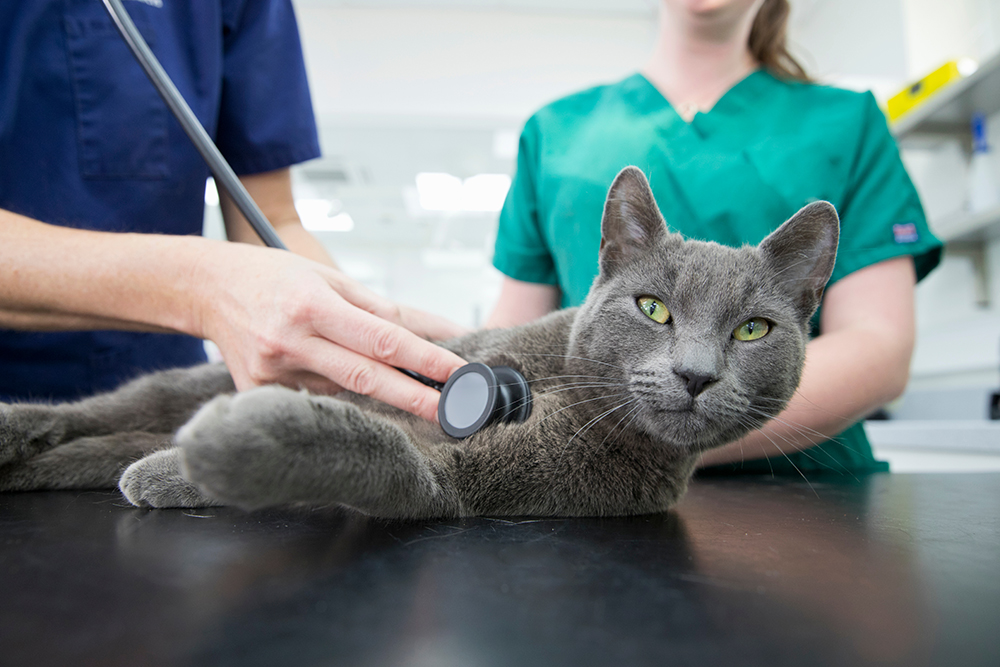
Will my cat recover from an aortic thromboembolism?
Unfortunately, many cats are euthanized once suffering from FATE. Once they lose blood flow to their back legs, tissue damage and self-damage may occur. If your cat does improve, keep in mind that the underlying cause of the blood clot is still present.

Conclusion
Feline aortic thromboembolism, abbreviated FATE, is a severely painful and debilitating condition. These blood clots are frequently associated with underlying heart disease, and FATE may be the first sign that your cat has heart disease. If your cat shows any of the typical signs of FATE, you should get them to a veterinarian immediately. Unfortunately, even with aggressive, immediate care, many cats will not recover.
Featured Image Credit: Kachalkina Veronika, Shutterstock
